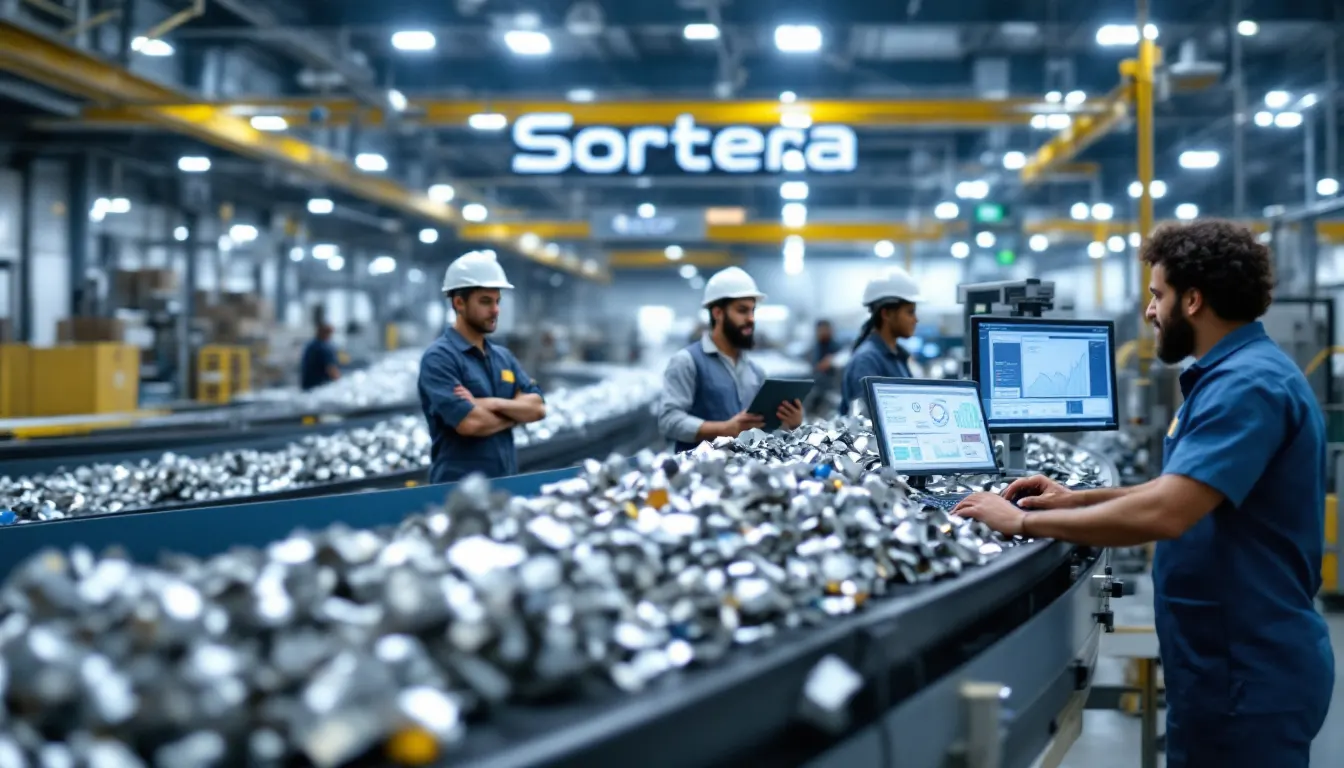How Tennessee’s AI System Turns Scrap Aluminum Into Profit

While scrap recycling has long been a low-margin, labor-intensive process in the United States, Tennessee is becoming ground zero for a new efficiency wave. Sortera, a startup specializing in AI-guided scrap metal sorting, is building its second automated sorting facility there in 2025, targeting scrap aluminum grades.
This development isn’t just about sorting faster. It’s about flipping what was once a high-cost bottleneck into a scalable profit engine through system-driven constraint repositioning.
Sortera’s AI dramatically lowers human intervention and error by precisely identifying aluminum grades, a task historically dependent on physical inspection or expensive manual sorting.
Automate sorting, automate profit. That’s leverage in action.
Why Sorting Aluminum Isn’t Just About Cutting Costs
Conventional wisdom treats scrap aluminum sorting as a labor cost problem. Hiring more workers or installing faster conveyors seems the obvious fix.
But Sortera’s system disrupts that logic by repositioning the constraint from labor to AI-driven precision, which unlocks higher value per scrap pound. Unlike competitors relying on manual or basic machine sorting, Sortera applies machine learning models specifically trained to differentiate aluminum alloys, boosting recovery rates and grades.
This shift mirrors principles discussed in How To Automate Business Processes For Maximum Business Leverage, emphasizing that automation’s real power lies in changing what limits scale, not just cutting heads.
Aluminum Sorting: From Basic Recycling to Systemic Advantage
Sortera’s AI-guided sorting facility in Tennessee accelerates throughput while maintaining grade purity, a key factor for recyclers who price scrap by composition. The startup’s second facility enhances geographic reach and capacity, building network effects absent in localized manual sorting operations.
Other scrap companies typically operate flat-rate sorting with blunt tools, ignoring alloy-by-alloy pricing which varies by up to 30%. Sortera’s system’s precision translates directly into premium pricing and reduced landfill waste, exemplifying business leverage through process improvement unlocked business leverage.
Who Should Watch and What’s Next
The key constraint that changed is information accuracy in scrap quality assessment, repositioning the bottleneck from manual labor speed to AI-powered decision-making. This unlocks economies of scale impossible with human sorting alone.
States with large metal scrap supplies and aging recycling infrastructure, like Indiana or Ohio, can replicate Tennessee’s model quickly. Investors tracking cleantech and industrial automation should note that Sortera is proof that AI-directed process optimization in commodity markets is no fad—it is scalable leverage.
Systems thinking combined with targeted AI deployment turns scrap processing from a cost center into a growth driver.
Precision AI changes the game: it’s not just automation, it’s a new constraint and a new profit formula.
Frequently Asked Questions
How does AI improve scrap aluminum sorting?
AI improves scrap aluminum sorting by precisely identifying aluminum alloys, reducing human error and intervention. This boosts recovery rates and allows scrap to be sorted by grade, increasing value by up to 30% per pound compared to traditional methods.
Why is sorting scrap aluminum by alloy important?
Sorting scrap aluminum by alloy is crucial because pricing varies by up to 30% depending on the alloy composition. Accurate sorting leads to premium pricing and reduces landfill waste, enhancing profitability for recyclers.
What makes AI-guided sorting more efficient than manual sorting?
AI-guided sorting accelerates throughput while maintaining grade purity and reduces reliance on labor. This repositioning of the bottleneck from labor speed to AI-driven precision unlocks economies of scale that manual sorting cannot achieve.
Which U.S. states can benefit from AI-driven scrap aluminum sorting?
States with large scrap metal supplies and aging recycling infrastructure such as Tennessee, Indiana, and Ohio can replicate AI-driven scrap aluminum sorting models to gain efficiency and scalability.
What is the main bottleneck AI overcomes in scrap aluminum recycling?
The primary bottleneck AI overcomes is information accuracy in scrap quality assessment, shifting the limit from manual labor speed to AI-powered decision-making for better sorting and profitability.
How does automation create leverage in scrap aluminum processing?
Automation creates leverage by changing the system constraint from labor-intensive sorting to AI precision, turning a high-cost bottleneck into a scalable profit engine and enabling scalable growth.
What impact does AI sorting have on scrap recycling costs?
AI sorting lowers labor costs by reducing human intervention and error, which are traditionally high in scrap sorting. This approach increases recovery rates and grade precision, ultimately improving margins in a typically low-margin industry.
How does Sortera's AI sorting contribute to reducing landfill waste?
Sortera's precise AI sorting lowers the amount of scrap aluminum misclassified or discarded by accurately grading alloys, leading to less material sent to landfill and better resource utilization.

